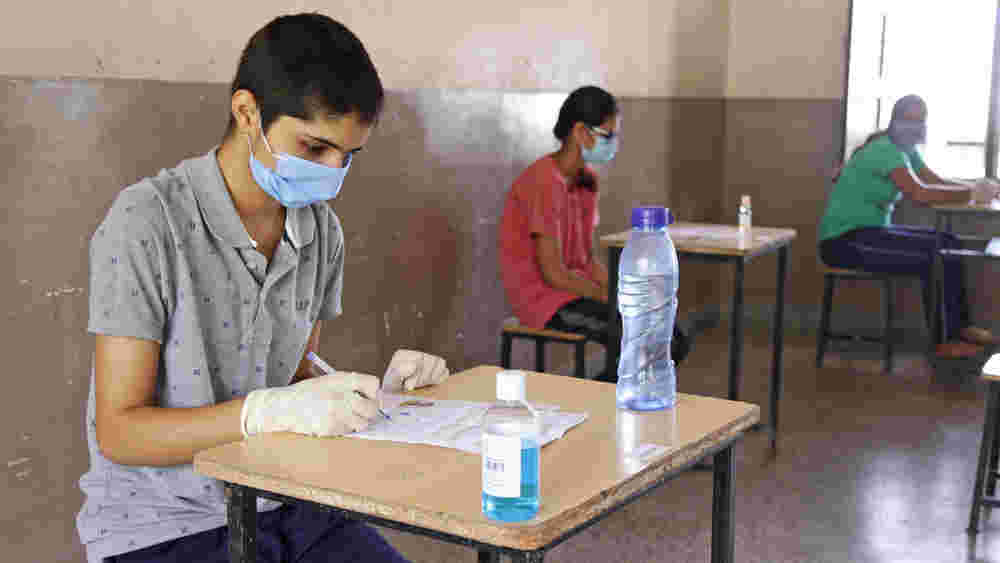
Examining examinations- present crisis as an opportunity to rethink and restructure examination and evaluation systems
The ministry of education should treat the present crisis as an opportunity to rethink and restructure examination and evaluation systems

Any social or political concern on the discourse of education is limited to examination and evaluation. An examination or an evaluation is not an end in itself; how we use the ‘results’ is what determines the value of examinations. Generally, the results of the senior secondary exams are taken into account for enrolment in higher education programmes. But statistics suggest that only 14-17 per cent of students have access to higher education. This means that around 83 per cent of students have the board exam marksheet as the last certificate of academic qualification on the basis of which they are compelled to make choices about life and livelihood. Most professional institutions — engineering, medical, business administration, law — conduct separate entrance tests for admission. State and Central universities have their own entrance tests or go by the Central Universities Common Entrance Test results. Similarly, the exams for employment are conducted separately by agencies like the School Service Commission, Union Public Service Commission and others. Yet the brouhaha over the board examination results and the examination itself does not subside. Schemes and strategies for alternatives to the examination or evaluation are not uncommon, ranging from open book and online exams to evaluation based on the results of Class XI or internal, online viva-voce. But any alternative needs to be considered on the basis of infrastructural constraints.
Educational accomplishment and performance are perceived to be key factors in determining merit. Many assume that education improves one’s chances for gainful employment and is, therefore, the most transparent means for social mobility. Some advocates of meritocracy have argued that academic talent is equally distributed throughout the population irrespective of socio-economic status. The truth is that children from families with higher socio-economic status and better repositories of cultural capital are likely to attend better-resourced schools and have access to a wider range of academic support and opportunities. Even within the same district, public schools can offer unequal educational opportunities due to differences in course offerings, the quality of faculty, and the socio- economic background of students. Educational institutions evaluate and certify individual skill, knowledge and efficiency but these performances are always subject to varying cultural values and market interests. For example, most students do not end up with gainful careers and the markets do not acknowledge the norms for merit recognized by conventional centres of learning.
As societies advance, the demand for specialization leads to a preference for those with higher scholastic attainment and greater knowledge. Simultaneously, as industry and manufacturing get replaced by services and advanced technocratic economies, the market for average expertise shifts, resulting in a smaller share of opportunities for the average performers.
Meritocracy, however faulty, is acceptable to a feudal aristocracy or the caste system. However, its success depends on egalitarianism and justice. An innately just system, in turn, depends on unbiased market forces in a society where access to education and employment should be equal. This parity is difficult to achieve because of existing social segregation. Some — not all — have the means to learn how to best navigate the field of play.
Is it then not time to examine the examination and the stultifying evaluation system?
Navneet Sharma is faculty, Department of Education, Central University of Himachal Pradesh

0 Response to "Examining examinations- present crisis as an opportunity to rethink and restructure examination and evaluation systems"
Post a Comment
Disclaimer Note:
The views expressed in the articles published here are solely those of the author and do not necessarily reflect the official policy, position, or perspective of Kalimpong News or KalimNews. Kalimpong News and KalimNews disclaim all liability for the published or posted articles, news, and information and assume no responsibility for the accuracy or validity of the content.
Kalimpong News is a non-profit online news platform managed by KalimNews and operated under the Kalimpong Press Club.
Comment Policy:
We encourage respectful and constructive discussions. Please ensure decency while commenting and register with your email ID to participate.
Note: only a member of this blog may post a comment.